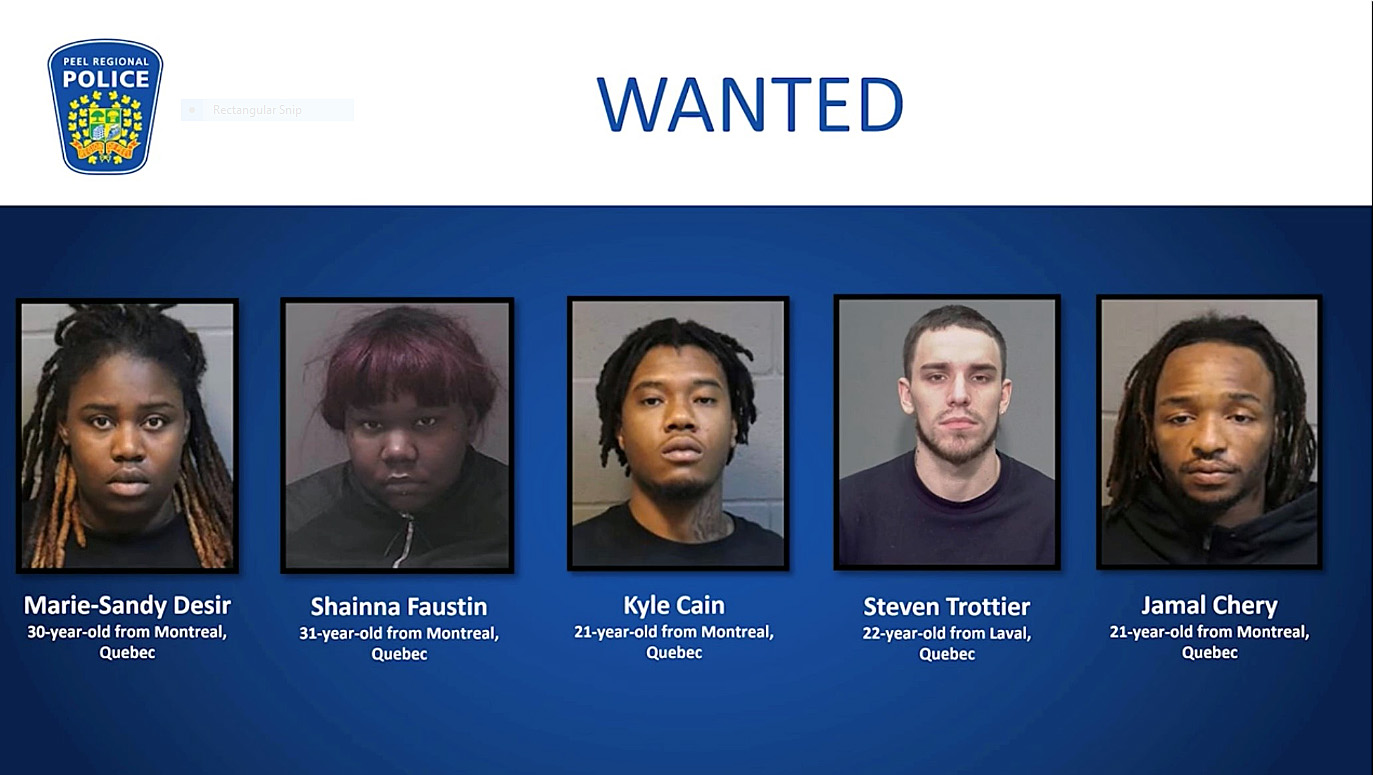Tech
U of T protesters say university ‘unwilling’ to discuss calls for divestment from Israel | CBC News
Organizers of the pro-Palestinian encampment at the University of Toronto say the school administration has been “unwilling” to discuss their core demands after almost a week of protests.
On Wednesday, a group of students and faculty members spoke at a news conference at the site of the protest at King’s College Circle, where they laid out their demands. They say they want the school to disclose and end investments going to businesses that support the Israeli government and to sever ties with Israeli academic institutions.
“If this administration thinks that they can threaten us by giving us the runaround over emails and in private conversations, they have something coming,” protest organizer Erin Mackey said.
Over the weekend, school administration met with students where they discussed health and safety, including concerns about bathroom access.
Sandy Welsh, the university’s vice-provost of students, called the conversations “constructive.” The students disagree.
Organizers of the pro-Palestinian encampment at the University of Toronto held a news conference on Wednesday at King’s College Circle to call on the university to disclose its ties with Israel and divest from Israeli companies. As Ali Chiasson shows, student protesters say they will not leave the area until their demands are met.
“They are even unwilling to engage in any sort of conversation around our demands,” Mackey said.
Students, alumni and faculty members taking part in the encampment are demonstrating alongside pro-Palestinian activists at university campuses across Canada and the U.S., as a ceasefire in the catastrophic seven-month war still feels distant.
The Jewish Faculty Network, a national organization of Jewish academics, released a statement on X, formerly known as Twitter, on Wednesday in support of the encampment.
The network’s steering committee wrote that there was “no justification for the reliance on law enforcement in the face of students’ exercising their Charter protected rights to freedom of speech and assembly.”
“We are devastated to see so many university administrators condemn student protests, frequently in the name of ‘Jewish safety.'”
University says encampment making some feel unsafe
In a statement posted on the U of T website, Welsh outlined several concerns regarding the encampment and said university officials have witnessed hateful messages and speech, altercations, large piles of firewood inside the encampment area as well as two fires burning inside. It also pointed to blocked exit points and impeded routes for emergency vehicles in case of fire or medical emergencies. And it raised concerns about people unaffiliated with the school being part of the encampment or staying there overnight.
“We know that some members of our community feel unwelcome and unsafe on campus due to the encampment. We must reiterate that the University accepts and encourages the widest range of debate, and has a high threshold for expression, including speech and imagery that is uncomfortable and offensive to some,” Welsh said.
“Discrimination and harassment exceed this threshold. We are committed to peaceful protest.”
Welsh said the encampment has attracted two demonstrations that brought thousands of people to the campus, along with flares and smoke bombs.
“As the summer term has begun, students are living in nearby residence buildings, and this poses an additional safety risk,” Welsh said.

Ontario premier Doug Ford has urged the university to end the encampment.
Protesters, meanwhile, say they are committed to staying put until their demands are addressed.
Police deny claims of surveillance
At the news conference, U of T assistant professor Robyn Maynard, who researches policing and social movements, laid out protesters’ concerns regarding police surveillance around the encampment, an action she says the university supports.
She said her colleagues have confirmed police are using audio and video monitoring, including night vision technology, and that they believe it’s likely officers are using facial recognition systems.
“Surveillance technologies in particular have been demonstrably a source of racial injustice,” Maynard told reporters.
However, Stephanie Sayer, a spokesperson for the Toronto Police Service, said in an emailed statement to Radio-Canada in Toronto that officers “are not conducting surveillance of the encampment site.”
Sayer said police’s hate crime unit is investigating three incidents that took place inside or nearby the encampment, including one on Sunday where a man was allowed into the area “but was later surrounded by several people, assaulted, and temporarily prevented from leaving the area.”

Jewish students, faculty hold ‘rally against hate’
More than 200 Jewish faculty members and students held “Rally Against Hate” on campus on Wednesday evening.
Speakers told the crowd that antisemitic acts are taking place “on almost a daily basis.”
“This campus has continued to become increasingly antisemitic,” U of T physics professor Pekka Sinervo told the crowd.
Students and faculty at the rally called for the encampment to be dismantled.
Kayla Saul, a second year student with the Jewish Medical Students Association, said the posters on display in the encampment make her and other Jewish students feel alienated.
“We’ve been around the area of the encampments … seeing messages like ‘Glory to all martyrs,'” she told CBC Toronto.
“These are messages that promote violence, that glorify the Oct. 7 attacks and that promote antisemitism.”
In a statement published on its website Thursday, U of T wrote that there “have been concerning incidents in or around the encampment, including reported assaults and hate speech.”









